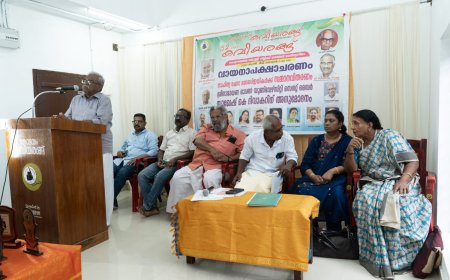Obesity; CBSE urges schools to encourage students to use stairs, limit ‘high-fat snack’
CBSE's recent circular highlights the obesity epidemic in India, citing NFHS-5 data. With projections indicating a rise in overweight adults, the circular mandates schools to promote healthy diets and physical activity

THE Central Board of Secondary Education (CBSE) has issued a follow-up circular dated 15 July 2025, reinforcing its earlier guidance on promoting healthy lifestyles among students through the establishment of ‘oil Boards’ in schools.
CBSE stated that this initiative sought to raise awareness of the dangers of excessive oil consumption and to encourage healthier dietary and physical activity habits among students and staff.
In continuation of Circular No. Acad-26/2025 dated 14 May 2025 on sugar boards, the latest directive from CBSE (Circular No. Acad-45/2025) highlighted the alarming rise of obesity in India.
Citing data from the National Family Health Survey-5 (NFHS-5, 2019-21), CBSE board noted that over one in five adults in urban areas are overweight or obese.
Further referencing the 2025 Lancet Global Burden of Disease (GBD) obesity forecasting study, CBSE stressed that the number of overweight and obese adults in India is projected to more than double — from 18 crore in 2021 to 44.9 crore by 2050.
Childhood obesity, CBSE added, is chiefly influenced by poor dietary habits and insufficient physical activity.
Addressing school principals, the CBSE circular mandated several measures to sensitize both students and staff:
Health Messaging on Official Stationery: Printing messages promoting healthy habits on letterheads, envelopes, notepads, folders and publications aims to provide ongoing reminders combating obesity.
Promotion of Healthy Meals and Physical Activity: Schools are urged to provide nutritious food options — emphasising fruits, vegetables and low-fat selections — while limiting sugary drinks and high-fat snacks. Physical activity initiatives include encouraging stairs usage, short exercise breaks during school hours, and facilitating walking routes around campus.
The CBSE circular also encouraged experiential learning by involving students in the design and preparation of these Oil Boards to foster engagement with health-conscious practices.
Relevant information, education and communication (IEC) materials — including posters and videos — are made available through the official YouTube channel of the Food Safety and Standards Authority of India (FSSAI), the CBSE circular stated.
CBSE underscored that this initiative aligns with the broader ethos of Atmanirbharta (self-reliance), stating: “We cannot rely on imported niche technologies that are crucial for our offensive and defensive missions” — drawing a parallel to the importance of indigenous solutions in education and health promotion.
School authorities have been called upon to play a vital role in stemming the obesity epidemic by embedding healthier habits from the grassroots level in educational environments.
The circular concluded with an appeal from CBSE to ensure “a safer, healthier generation, equipped to face future challenges with better wellbeing,” reinforcing the critical role of schools in shaping lifelong habits of wellness.









































































